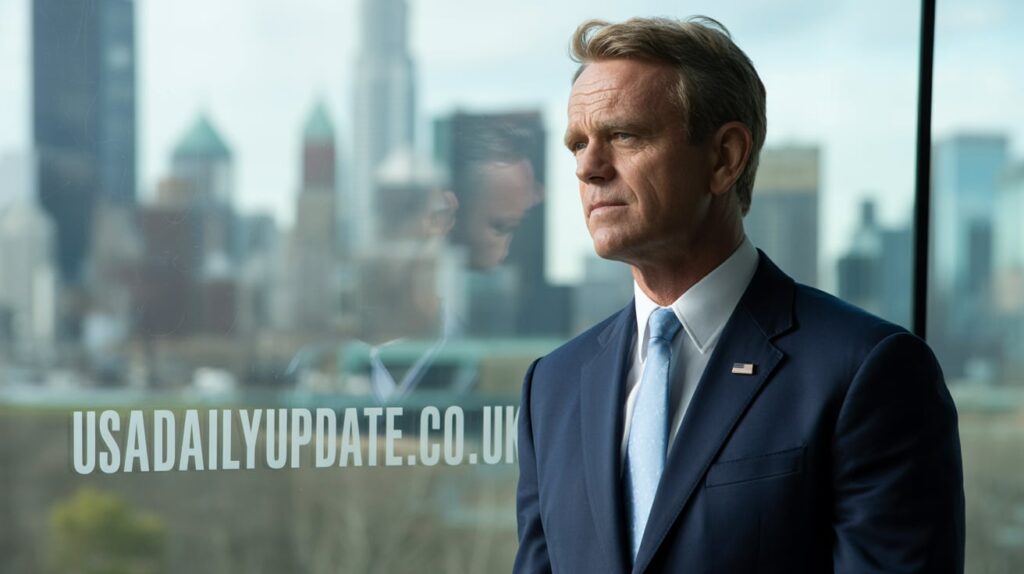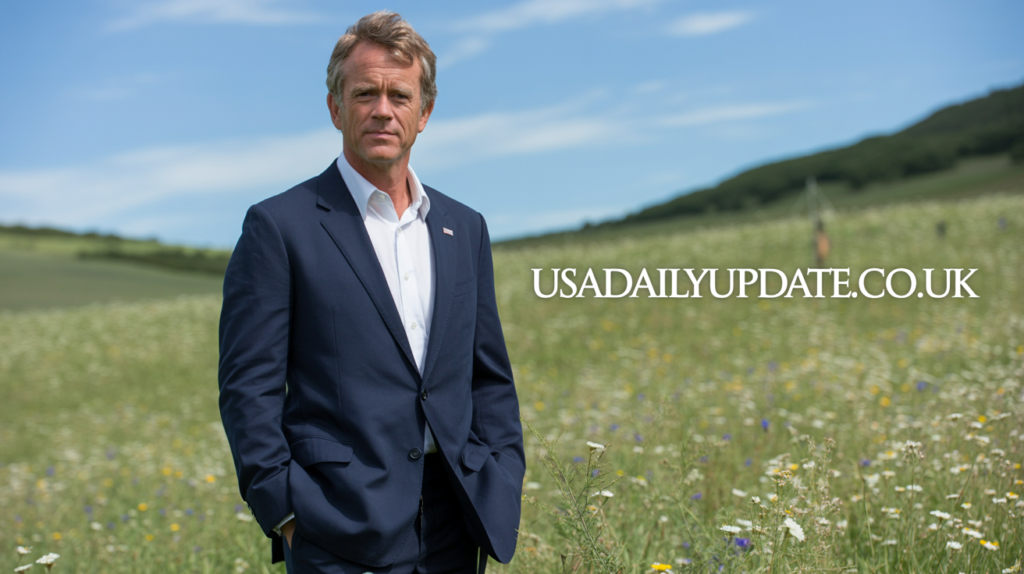RFK Jr Young: Powerful Story of Triumph and Tragedy

Introduction
You’ve probably heard the name Robert F. Kennedy Jr. in recent news cycles. But have you ever wondered what shaped this controversial figure during his younger years? Understanding RFK Jr young provides crucial context for comprehending the man he became.
Robert F. Kennedy Jr. didn’t just grow up in any American family. He was born into political royalty, surrounded by power, privilege, and ultimately, profound tragedy. His early life reads like a novel filled with dramatic highs and devastating lows that would fundamentally shape his worldview and future path.
The young RFK Jr. experienced events most people can’t imagine. From White House visits as a child to witnessing his father’s assassination at age 14, his formative years were anything but ordinary. These experiences created layers of complexity that help explain his later choices, beliefs, and the polarizing figure he’s become in American public life.
In this article, we’ll explore the early years of RFK Jr., examining his family background, childhood experiences, educational journey, personal struggles, and how these elements combined to create one of America’s most talked about personalities today.
The Kennedy Legacy and Family Background
Born Into American Royalty
Robert Francis Kennedy Jr. was born on January 17, 1954, in Washington, D.C. He arrived as the third of eleven children born to Robert F. Kennedy and Ethel Skakel Kennedy. The timing of his birth placed him squarely in the golden age of the Kennedy political dynasty.
His uncle, John F. Kennedy, was serving as a U.S. Senator and would soon become President. His father was already making waves as a prominent attorney and would become Attorney General. The young RFK Jr. literally grew up in the corridors of American power.
The Kennedy compound in Hyannis Port, Massachusetts, served as the family’s gathering place. Imagine being a child in that environment, surrounded by senators, congressmen, and future presidents. Touch football games on the lawn weren’t just family fun but competitive events that taught winning mattered.
This wasn’t just privilege. It came with enormous expectations and pressure. Every Kennedy child understood they were expected to serve, to lead, and to uphold the family legacy. That weight shaped RFK Jr young from his earliest days.

The Skakel Connection
His mother’s side brought its own complexity to young RFK Jr.’s life. The Skakel family was wealthy and prominent, but also troubled. Ethel Skakel Kennedy came from money, and her family’s dynamics would later intersect with tragedy in unexpected ways.
Growing up, young Robert witnessed the blend of two powerful families. The Kennedys brought political ambition and public service ideals. The Skakels contributed wealth and their own set of family challenges that would surface over the years.
Family gatherings were massive affairs with cousins everywhere. The sheer number of relatives created a unique childhood environment. Competition was constant, attention was divided, and standing out required effort and achievement.
This family structure meant young RFK Jr. was never just an individual. He was always part of the collective Kennedy identity. That reality shaped how he saw himself and how others perceived him throughout his formative years.
Childhood in the Shadow of Power
Early Years in the White House Era
The young RFK Jr. spent crucial early years during his uncle’s presidency. From ages 7 to 9, his family held enormous influence in American politics. His father served as Attorney General, tackling organized crime and civil rights issues with characteristic Kennedy intensity.
Visits to the White House were normal for young Robert. While other kids visited monuments as tourists, he played in rooms where history was made. This normalized extraordinary access and power in his developing worldview.
His father’s work meant dinner table conversations weren’t about typical topics. Civil rights struggles, Cold War tensions, and political strategy filled the air. Young minds absorb these environments, and RFK Jr. was no exception.
The Kennedy children were encouraged to be aware and engaged with current events. They were expected to have opinions and defend them. This intellectual rigor started young and shaped how RFK Jr. would later approach complex issues.
The 1968 Assassination and Its Impact
June 5, 1968, shattered young RFK Jr.’s world forever. His father was assassinated in Los Angeles after winning the California Democratic presidential primary. Robert was just 14 years old when he lost his father to violence.
This wasn’t the first assassination young Robert experienced. His uncle President Kennedy had been killed five years earlier when Robert was only nine. Two traumatic assassinations before age 15 left permanent scars.
The impact of losing his father during crucial teenage years cannot be overstated. Adolescence is already tumultuous, and adding profound grief and trauma creates a psychological perfect storm. Young RFK Jr. struggled with this loss for years.
His mother, Ethel, was left to raise eleven children alone. The family structure that had been chaotic but stable became even more challenging. Young Robert had to navigate grief while his family adjusted to a new, darker reality.
Education and Formative Experiences
Academic Journey
Despite personal turmoil, young RFK Jr. pursued education at prestigious institutions. He attended several schools during his youth, including Millbrook School in New York. His academic path reflected both privilege and the expectations placed on Kennedy children.
Education wasn’t optional or casual in the Kennedy family. Excellence was expected, and young Robert generally met those expectations. However, his path wasn’t always smooth, particularly during the years immediately following his father’s death.
He eventually attended Harvard University, following the Kennedy tradition. Harvard represented more than education; it was part of the family legacy. His father and uncles had walked those same halls, adding pressure to an already intense environment.
During his college years, young RFK Jr. began developing interests that would define his later career. Environmental issues caught his attention early. The combination of Kennedy idealism and emerging environmental awareness in the 1970s shaped his thinking.
Outdoor Adventures and Nature Connection
Young RFK Jr. developed a deep connection with nature and the outdoors. Falconry became a particular passion, an unusual hobby that revealed his affinity for wildlife and natural systems. This interest wasn’t trivial but foundational to his future environmental work.
The Kennedy compound’s location on Cape Cod provided easy access to coastal environments. Young Robert spent countless hours exploring beaches, marshes, and waters. These experiences weren’t just recreation but education in natural systems.
This connection to nature became an anchor during difficult times. When family chaos or personal struggles overwhelmed him, the natural world offered solace and stability. That relationship with the environment would define much of his adult career.
Outdoor activities also connected young RFK Jr. to his father’s memory. Robert F. Kennedy Sr. had encouraged his children to be active, adventurous, and fearless. Continuing those pursuits honored that legacy while building personal identity.
Personal Struggles and Challenges
Adolescent Rebellion and Substance Issues
The young RFK Jr. didn’t handle his father’s death and family pressures gracefully. Like many teenagers facing trauma, he turned to rebellion and risky behaviors. Substance abuse became a problem during his late teens and early twenties.
In 1983, when Robert was 29, he was arrested for heroin possession. While technically past his “young” years, this arrest stemmed from struggles that began much earlier. The patterns established during his youth culminated in this very public low point.
Young Robert’s struggles weren’t unique among Kennedy cousins. The family’s third generation faced enormous pressure and many turned to destructive coping mechanisms. The combination of privilege, trauma, and expectations created a toxic environment for healthy development.
These challenges humanize RFK Jr. in important ways. He wasn’t just born lucky and successful. The young man struggled genuinely with pain, addiction, and finding his path. Understanding these struggles provides context for his later fierce advocacy and controversial stances.
Finding Purpose Through Adversity
The young RFK Jr. eventually found redemption through environmental advocacy. After completing treatment and getting sober, he channeled his energy into causes that mattered to him. The transformation from troubled youth to passionate advocate became a redemption story.
Working on environmental issues gave young Robert a sense of purpose beyond the Kennedy name. He could make a difference based on his own efforts and convictions. This independence was crucial for developing identity separate from family legacy.
His legal education and environmental work allowed him to combine Kennedy idealism with practical action. Rather than just talking about problems, young RFK Jr. could actually file lawsuits and create change. This tangible impact proved satisfying and meaningful.
The struggles of his youth informed his later work in unexpected ways. Someone who’d hit bottom understood vulnerability and fighting against odds. These experiences made him a more effective advocate for causes he believed served the underdog.
Physical Characteristics and Personal Traits
The Young RFK Jr. Appearance
Photos of RFK Jr young show a striking resemblance to his father. He inherited the Kennedy looks, including the distinctive family features that made him recognizable. The physical similarity to his assassinated father added another layer to his public identity.
Young Robert was athletic and active, traits encouraged in the Kennedy family. Sports and outdoor activities kept him physically fit and provided outlets for competitive energy. The Kennedy touch football tradition wasn’t just legend but reality he lived.
His appearance evolved through his youth from child to teenager to young man. Each phase of young RFK Jr. reflected both his Kennedy heritage and his own emerging identity. Photographs from different periods show the physical maturation alongside the challenges he faced.
Later in life, a condition called spasmodic dysphonia would affect his voice, but the young RFK Jr. didn’t face this challenge. His youth was marked by physical health even as he struggled with emotional and psychological issues.
Personality and Character Development
Young RFK Jr. displayed intelligence and charisma from early ages. The Kennedy verbal skills and quick wit were evident in Robert. He could debate, persuade, and engage people effectively even as a young person.
However, he also showed signs of the rebellious streak that would cause problems. Young Robert questioned authority and challenged conventional thinking. These traits would later serve his advocacy work but caused friction during his youth.
Friends and family describe the young RFK Jr. as passionate and intense. When he cared about something, he pursued it wholeheartedly. This intensity applied to both positive pursuits and destructive behaviors during different periods.
His character was shaped by contradiction. Privilege and tragedy, expectation and rebellion, idealism and struggle all competed within him. Understanding young RFK Jr. means recognizing these competing forces that shaped his development.
Relationships and Social Development
Family Dynamics
Growing up as one of eleven children created unique social dynamics. Young RFK Jr. had to compete for attention and resources within a large family. Birth order psychology suggests middle children often feel overlooked, which may have affected Robert.
His relationship with his mother, Ethel, was complex. She was loving but overwhelmed, grieving while raising a huge family alone. Young Robert didn’t always get the individual attention he might have needed during crucial developmental periods.
Sibling relationships were intense and competitive. The Kennedy children pushed each other, supported each other, and occasionally clashed with each other. These relationships shaped young RFK Jr.’s social skills and competitive nature.
Extended family connections meant young Robert knew his numerous cousins well. The Kennedy compound gatherings created a tribal atmosphere. This intense family connection provided support but also pressure and complications.
Friendships and Social Circles
Young RFK Jr. moved in elite social circles due to his family name. His friends often came from similarly prominent families. These relationships exposed him to power and privilege while potentially insulating him from average American experiences.
School friendships were complicated by his famous name. Young Robert never knew if people liked him for himself or his Kennedy connection. This uncertainty affected his ability to form authentic relationships and trust others.
As he grew older, environmental interests connected young RFK Jr. with people outside political circles. Falconry and nature enthusiasts came from diverse backgrounds. These relationships provided connection based on shared interests rather than family name.
His struggle with addiction later in youth affected friendships and trust. Substance abuse isolates people and damages relationships. Young Robert experienced these consequences, which taught harsh lessons about authenticity and loyalty.
Early Environmental Awakening
Seeds of Future Activism
The environmental movement was emerging during RFK Jr young adulthood. The first Earth Day occurred in 1970 when Robert was 16. This timing meant environmental consciousness developed alongside his own maturation and identity formation.
His connection to nature through outdoor activities naturally led to conservation concerns. Witnessing environmental degradation firsthand motivated young RFK Jr. to want to protect what he loved. This personal connection made environmental issues more than abstract politics.
Legal education provided tools for environmental advocacy. Young Robert recognized that lawsuits and regulations could force polluters to change behavior. This realization channeled his Kennedy idealism into practical action with measurable results.
Early environmental work gave young RFK Jr. a cause that was his own. While building on Kennedy public service values, environmentalism wasn’t specifically a Kennedy issue. This allowed Robert to establish independent identity while honoring family legacy.
Influential Mentors and Experiences
Specific people influenced young RFK Jr.’s environmental path. Teachers, activists, and fellow nature enthusiasts shaped his thinking. These mentors provided guidance during his formative years and early adult development.
Direct experiences with environmental problems made abstract issues concrete. Witnessing polluted rivers or damaged ecosystems affected young Robert emotionally. These experiences fueled passion that would drive decades of advocacy work.
His father’s legacy of fighting for the powerless influenced his approach to environmentalism. Young RFK Jr. saw environmental advocacy as defending communities harmed by pollution. This framing connected his work to broader Kennedy values of social justice.
The combination of personal passion, family values, and practical legal tools created a powerful foundation. Young RFK Jr. developed an approach to environmentalism that would define much of his adult career and public identity.

The Transition to Adulthood
Finding His Path
The journey from RFK Jr young to the man he became wasn’t straightforward. Multiple false starts, struggles with addiction, and searching for purpose marked his twenties. This messy transition reflects the complexity of his youth and circumstances.
Completing law school at the University of Virginia represented an important milestone. Legal education provided structure and direction during a period when young Robert needed both. The combination of purpose and discipline helped him gain footing.
His environmental law work began seriously in the mid 1980s. Joining organizations like the Natural Resources Defense Council and Riverkeeper gave young RFK Jr. platforms for his passion. Professional success helped rebuild confidence damaged by earlier struggles.
Sobriety marked another crucial transition. Getting clean and staying sober required confronting the pain and trauma he’d tried to escape. This personal work was necessary before young Robert could fully step into adult responsibilities and purpose.
Legacy of the Young Years
The experiences of RFK Jr young fundamentally shaped who he became. The combination of privilege and tragedy, expectation and rebellion, created a complex individual. You can’t understand the adult without knowing the youth.
His environmental advocacy stems directly from childhood connections to nature. The passion for protecting rivers and ecosystems started with young Robert exploring Cape Cod shores. Early experiences planted seeds that grew into lifetime commitments.
Struggles with addiction and recovery informed his later perspectives on health and medicine. Personal experience with vulnerability and healing shaped how he approached these topics. The young man’s struggles influenced the older man’s controversial stances.
The Kennedy legacy both empowered and burdened young RFK Jr. throughout his formative years. He inherited connections, expectations, and trauma. Managing this inheritance while developing his own identity defined his youth and continues influencing him today.
Conclusion
Understanding RFK Jr young provides essential context for comprehending the controversial figure he’s become. His early years combined extraordinary privilege with profound trauma. Growing up Kennedy meant access and opportunity but also crushing pressure and devastating loss.
The young Robert F. Kennedy Jr. experienced his father’s assassination at 14, struggled with substance abuse, and eventually found purpose through environmental advocacy. These formative experiences shaped his worldview, values, and approaches to the causes he champions. His youth wasn’t simple or easy despite the advantages his name provided.
The complexity of RFK Jr young helps explain the polarizing nature of his adult public life. His early experiences taught him to question authority, fight for beliefs, and persist despite criticism. Whether you agree with his current positions or not, understanding where he came from illuminates how he got here.
What aspects of RFK Jr.’s young life surprise you most? How do you think childhood experiences shape public figures and the positions they take? The story of young Robert F. Kennedy Jr. reminds us that everyone’s path is shaped by both triumph and tragedy, privilege and pain.
Frequently Asked Questions
How old was RFK Jr when his father died?
RFK Jr was 14 years old when his father, Robert F. Kennedy, was assassinated on June 5, 1968. This traumatic event occurred during crucial adolescent years and profoundly impacted his psychological development and life trajectory.
Where did RFK Jr grow up?
Young RFK Jr grew up primarily in McLean, Virginia, and at the Kennedy compound in Hyannis Port, Massachusetts. He moved between multiple residences due to his family’s prominence and his father’s political career in Washington, D.C.
What schools did young RFK Jr attend?
RFK Jr attended several schools including Millbrook School in New York during his youth. He later went to Harvard University for undergraduate studies and earned his law degree from the University of Virginia, following Kennedy family educational traditions.
Did RFK Jr have substance abuse problems when young?
Yes, young RFK Jr struggled with substance abuse issues during his late teens and twenties. He was arrested for heroin possession in 1983 at age 29, though his struggles began earlier. He eventually achieved sobriety and has remained clean since.
How many siblings does RFK Jr have?
RFK Jr is one of eleven children born to Robert F. Kennedy and Ethel Skakel Kennedy. Growing up in such a large family created unique dynamics, with constant competition for attention and resources within the household.
When did RFK Jr become interested in environmental issues?
Young RFK Jr developed his environmental interests during his teenage and college years in the 1970s. His passion for falconry and outdoor activities, combined with the emerging environmental movement, sparked his interest in conservation and environmental law.
What was RFK Jr’s relationship with his mother like?
Young RFK Jr’s relationship with his mother Ethel was loving but complicated. After his father’s assassination, Ethel was left to raise eleven children alone while grieving. The circumstances made it difficult for her to provide individual attention to each child.
Did young RFK Jr know President John F. Kennedy?
Yes, young RFK Jr knew his uncle President John F. Kennedy during his early childhood. JFK was president from 1961 to 1963, when Robert was between ages 7 and 9. The assassination in 1963 was his first experience with family tragedy.
What hobbies did RFK Jr have as a young person?
Young RFK Jr was passionate about falconry, outdoor activities, and exploring natural environments. He spent considerable time on Cape Cod beaches and marshes, developing the deep connection to nature that would later define his environmental advocacy career.
How did being a Kennedy affect RFK Jr’s youth?
Being a Kennedy brought enormous privilege, access, and opportunity to young RFK Jr. However, it also brought crushing expectations, intense public scrutiny, and the trauma of family assassinations. The name was both an advantage and a burden throughout his formative years.
Also read Usadailyupdate.co.uk



